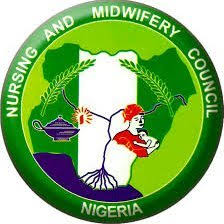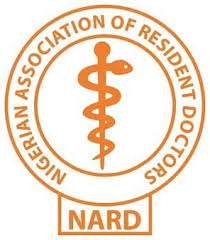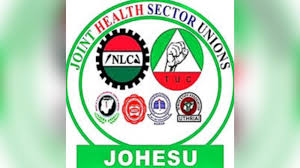The National Blood Transfusion Service (NBTS) hosted a Stakeholders' meeting which held on Tuesday 15th December 2020 at NAF Conference Centre and Suites, Kado, Abuja.
A total of 128 participants were drawn from various Ministries, Departments and Agencies of government, State Commissioners of Health, Professional Societies, Regulatory Bodies, International Development Organizations, Non-Governmental Organisations, Emergency Responder Agencies, Military and Para-Military Medical Services, Community Groups, Media and Communication Organizations, Policy Institutions, Consumer Goods Manufacturers, Transportation Unions and Organisations, and NBTS Zonal Centres.
The expectations at the end of the meeting were to:
- a. Share the journey and challenges of NBTS in achieving its mandate for safe, quality, and accessible blood and blood products nationwide.
- b. Brainstorm on efficient and effective strategies to improve upon current operations and transform Nigeria to a country with 100% voluntary nonremunerated blood donation (VNRBD) through key initiatives.
- c. Chart a road map for partner collaboration for the actualization of robust, innovative, sustainable, and accessible quality blood services in Nigeria over the next decade via the NBTS Ten-Year Strategic Plan.
- d. Outline realistic financing options, partners, and prospects for the Blood Service.
- e. Identify strategies and partners required to strengthen and expand NBTS regulatory role.
- f. Define the feasibility, opportunities, and strategies for effective production of blood components and manufacturing of plasma-derived medicinal products (PDMPs).
The National Coordinator, Dr Omale Joseph Amedu mni, in his Opening Address noted that the NBTS was going beyond regulation and coordination of blood services, to commence attraction of investors for commercial investments through Public Private Partnership (PPP) for production of blood components and plasma-derived medicinal products (PDMPs) for local healthcare needs and exports. The Permanent Secretary Federal Ministry of Health represented by his Special Assistant, Dr Abubakar A. Ismaili, in his opening remarks noted that NBTS since its establishment has succeeded in delivering on key achievements such as ensuring the availability of safe blood units that are highly subsidised by the Federal Government, and donated by Voluntary non-remunerated blood donors, thus reducing the prevalence rates of HIV and other blood borne infections.
The Honourable Minister of State for Health Dr Adeleke Olorunimbe Mamora, represented by his Technical Assistant, Dr. Nneka Orji stated that the provision of safe blood is vital to the achievement of optimal health outcomes regardless of age, gender, ethnicity, and socioeconomic outcomes. In his Keynote Address, the Honourable Minister of Health Dr Osagie Ehanire FWACS, represented by his Senior Technical Asistant / Director, Dr. Chris Isokpunwu stated that it was imperative for blood services in the country to be properly coordinated and regulated. He noted that the NBTS is an establishment of the FMoH as provided for in part VI of section 47, subsection I of the National Health Act 2014 which empowers the NBTS to control, conduct and regulate blood and blood products to ensure the achievement of its mandate. He subsequently launched the NBTS Ten-Year Strategic Plan for implementation.
The National Blood Transfusion Service (NBTS) has the mandate to regulate, coordinate and provide safe, quality blood and blood products for transfusion in a cost-effective manner to all who may require it in Nigeria with an emphasis on voluntary non-remunerated blood donors (VNRBDs) to save lives across the country. Blood is life. Safe blood saves lives. VNRBD is the safest source of safe blood.
Blood Transfusion Services are critical for attaining the sustainable development goals (SDGs) and universal health coverage (UHC) especially because positive health outcomes for a large segment of the population are reliant on the availability and accessibility of safe blood and blood products that can be swiftly mobilised when needed.
The mandate of the NBTS has been severely challenged by a lack of quality standards in the provision of blood services by providers nationwide. There is thus a need for robust legal frameworks to guide the provision of safe, quality blood services in Nigeria.
Five presentations were made at the Stakeholders' meeting, and include the following:
- 1. Presentation on NBTS in Perspective, Need for VNRBD and Regulation of Blood Establishments by Dr Folake Ademola-Majekodunmi FMCP, Former National Coordinator, NBTS
- 2. Presentation on The Need for Blood Components and Derivatives in Nigeria —A Haematologist's Perspective by Prof Aminu Sirajo Mohammed, Zonal Coordinator, NBTS North-West Zonal Centre, Kaduna
- 3. Presentation of NBTS Ten-Year Strategic Plan by Dr Adaeze Oreh, Head of Planning, Research and Statistics, NBTS
- 4. Concept Note on One Million Safe Blood Units Initiative (OMSBUI) & National Strategic Safe Blood Reserve (NSSBR) by DrOmale Joseph Amedu mni, National Coordinator, NBTS.
- 5. Keynote address by the Honourable Minister of Health, Dr Osagie Ehanire FWACS.
Observations
1. The National Health Act (NHAct) of 2014 [Section VI, Sub-section 47-57] is the legal instrument that empowers NBTS to regulate and coordinate blood services in Nigeria.
2. The National Blood Service Commission Bill when passed into law will further strengthen the NBTS mandate to coordinate, regulate and provide safe, quality blood services in Nigeria.
3. All NBTS physical structures are in an extreme state of dilapidation, and very much in need of infrastructural remodelling.
4. The NBTS centres are replete with inadequate and poorly fu notional project vehicles.
5. All NBTS laboratories have out-of-date equipment, and also require new and newer technology for blood components and PDMP manufacturing.
6. There is Low public awareness and deep cultural myths and misconceptions on voluntary blood donation bythe public.
7. The Blood Service requires a lot of investment in advocacy, sensitisation, and enlightenment for the motivation of voluntary non-remunerated blood donation down to the community level.
8. There are widespread reports of transfusion of unsafe blood and profiteering practices nationwide.
9. Blood establishments in Nigeria need to be regulated and coordinated for the safety and quality of blood and blood products, including active haemovigilance.
10. The blood service is poorly funded and unable to achieve its mandate without adequate funding.
11. Prevalent insecurity nationwide hinders the activities of NBTS.
12. High cost of power generating sets and irregular power supply to ensure cold chain management and blood safety at all NBTS centres.
13. At the 58th meeting of The National Council on Health (NCH) held in Sokoto in 2016, it was agreed that State Governments should be encouraged to establish State Blood Transfusion Services (SBTS) and take over management of those states which already had NBTS Centres located in their states.
14. NBTS does not exist in all the states of the Federation, and therefore for national spread, is willing to provide technical support for states to ope rational ise the NCH decision.
15. There is a wide gap between the demand and availability of blood components and plasma-derived medicinal products (PDMPs) in Nigeria
16. There is need for investments in blood components processing and manufacture of plasma-derived medicinal products (PDMPs) in Nigeria.
17. The NBTS Ten-Year Strategic Plan outlines activities and operations which when implemented would enhance blood availability, safety, quality, accessibility, and sustainability from 2021 to 2030.
18. Key initiatives to be launched by the NBTS to ensure safe blood availability in Nigeria include the 'One Million Safe Blood Units Initiative' and the 'National Strategic Safe Blood Reserve' for emergencies.
19. Government at all levels, Partners and stakeholders need to play a role towards the implementation of the NBTS initiatives.
Resolutions
Participants at the NBTS Stakeholders' Meeting thus resolved as follows:
1- Funding
- There is a need for a dedicated percentage of the Basic Healthcare Provision Fund provided by the National Health Act 2014 to be earmarked for the provision of safe blood services by NBTS.
- Local and international non-governmental organisations, global policy institutions, international development organisations, health institutions, media firms, and corporate institutions would be vital and could provide support in cash, materials, capacity-building, media coverage, donor incentive package, or blood donation drive logistics.
2- Surmounting challenges in the legal framework and regulation of blood services will be done through:
- Communicating the resolution from the 58th National Council on Health regarding State-run Blood Transfusion Service centres to State Governments by the Honourable Minister of Health.
- Notifying Tertiary Hospital's Chief Medical Directors/Medical Directors on the need to establish Hospital Transfusion Committees (HTCs) to ensure appropriate clinical use of blood and blood products, and minimise adverse reactions and events following blood transfusion, with ELISA as minimum standard for screening (4th generation ELISA as a minimum for HIV screening).
- Communicating quality standards to relevant blood establishments across the three tiers of government.
- Enforcement of sanctions for breaches of standards in collaboration with law enforcement agencies.
- Stakeholders include Government-run hospitals and blood banks, Committee of Hospital CMDs/MDs, private blood establishments, State Ministries of Health, Professional Bodies and Societies, Law Enforcement Agencies, National and State Houses of Assembly, National Agency for Food and Drug Administration and Control (NAFDAC).
3- Effective achievement of 100% VNRBD in Nigeria should be done through:
- Public health education and sensitisation using various strategies and communication channels to dispel myths and misconceptions about voluntary blood donation, also using Voluntary Blood Donor Clubs and Secondary Schools Blood Safety Clubs.
- High level advocacy to community gatekeepers such as NHIS, NYSC, NOA, NUC, youth organisations, educational, traditional, and religious leaders.
- Ensuring donor retention through a regularly updated voluntary blood donor database, and recognition of voluntary non-remunerated blood donors on Special Days with personalised greetings and provision of exclusive privileges extended to donors who have achieved certain milestones in blood donation.
- Key partners include media, blood safety ambassadors, community groups and non-governmental organisations, corporate bodies, healthcare providers, professional bodies, government at all levels, international development partners, and social influencers.
4- Achieving the One Million Safe Blood Units Initiative' (OMSBUI) and National Strategic Safe Blood Reserve (NSSBR) should be done through:
- Identification and mobilisation of target groups, with increased public awareness and motivation for blood donation
- Mobilisation of NGOs, Community-based organisations, Faith-based organisations, and other partners across sectors.
- Mobilisation of resources for operation of the initiatives. iv. Strengthening institutional infrastructure and service delivery capacity.
5- Component production at a national scale in Nigeria is feasible and could be achieved through:
- Conduct of pilot survey of health facilities on their blood product demands should be done as quickly as possible to achieve component production goals.
- Study tour and visits to established best practice Centres in Africa and other part of the World.
- Human resource and institutional capacity-building in component production. iv. Incorporation of quality in all areas of component production to meet international standards.
- Prioritise the strengthening of power supply through alternative power sources to ensure cold chain management.
- The value chain for Nigeria includes blood component and derivatives production, marketing, and service provision.
This communiqué was drafted and agreed to by all Participants at the One-Day National Blood Transfusion Service Stakeholders' Meeting, today Tuesday the 15th of December 2020, after a motion moved by Papa Idris Saliu, Country Director, SBFA and seconded by Major Iriah Samuel, the Coordinator of Armed Forces Blood Service.




